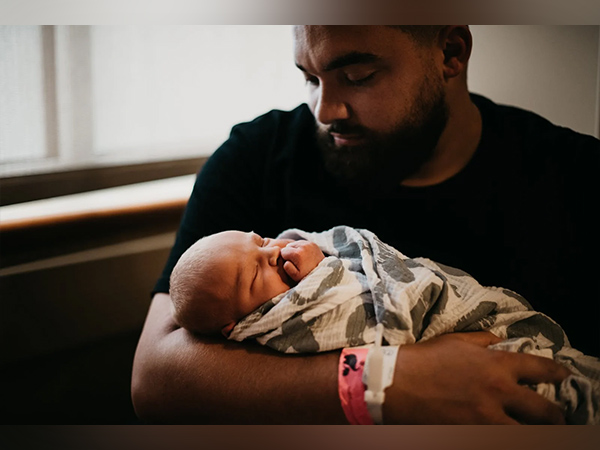

A baby’s cry is a kind of communication used to draw an adult caregiver’s attention, and each infant screams in a similar yet distinct way. An international study team analyzed the vocal behavior of infant mice, known as pups, to establish how the father’s age influences the pups’ vocal communication and body weight growth.
The team published their findings in the journal iScience.
Research suggests that infant crying can serve as a marker of a baby’s development. Altered crying in a baby may indicate a risk for autism spectrum disorder or other neurodevelopmental disorders. Researchers know that children with these disorders show particular crying patterns.
However, scientists do not fully understand what makes the crying patterns of these children different. Recent studies have shown that advanced paternal age is a risk factor for neurodevelopmental disorders and lower body weight in the offspring.
Wanting to better understand the connection between a father’s age and vocal behavior in their offspring, a research team led by Professor Noriko Osumi, Tohoku University Graduate School of Medicine has conducted a study, using mice, to determine how paternal aging influences the vocal behavior of offspring.
One of the team’s main findings was that the advanced paternal age causes alterations in early vocal behavior and increases the number of offspring with atypical developmental patterns.
“This vocal feature of pups born to aged fathers is similar to that of pups from autism spectrum disorder model mice. Moreover, pups born to young fathers showed a rich repertoire, while those born to aged fathers exhibited a limited repertoire,” said Professor Osumi.
In recent years, scientists have studied ultrasonic vocalizations in mice to learn more about the neurobiology of vocal communication. They know that when a pup is separated from its mother and littermates, it emits ultrasonic vocalizations consisting of various sound elements. When the mother hears these sounds, she responds by coming to retrieve the pup. This type of behavior in mice is similar to that of a human infant and mother.
The Tohoku University research team conducted a series of computational analyses of ultrasound vocalizations, comparing the pups of females who mated with young males and females who mated with older males. They separated the young pups from their mother and littermates, one by one, and recorded the ultrasonic vocalizations that occurred. Then the researchers analyzed the ultrasonic vocalization sonograms using machine learning tools.
The researchers examined the ultrasonic vocalization consisting of syllables. Their analyses showed that in pups with advanced-age fathers, the syllables were reduced in number and duration. The syllable composition was also altered, with a more limited syllable repertoire in the pups with advanced-age fathers. In addition, they measured the body weight of the pups after they completed each ultrasound vocalization recording. Comparing the weights, the team discovered that the pups with advanced-age fathers had consistently lower body weight gain than pups with young fathers.
In modern societies where humans are marrying and giving birth at older ages, advanced paternal age may represent a risk factor for neurodevelopmental disorders. This finding reiterates the clinical evidence that advanced paternal age is a risk factor for the atypical development observed in children with neurodevelopmental disorders and suggests that the effect of advanced paternal age could be detected in early infancy. As a next step, the team will be working to identify the neural basis governing ultrasound generation and the mechanisms by which advanced paternal age affects the offspring.